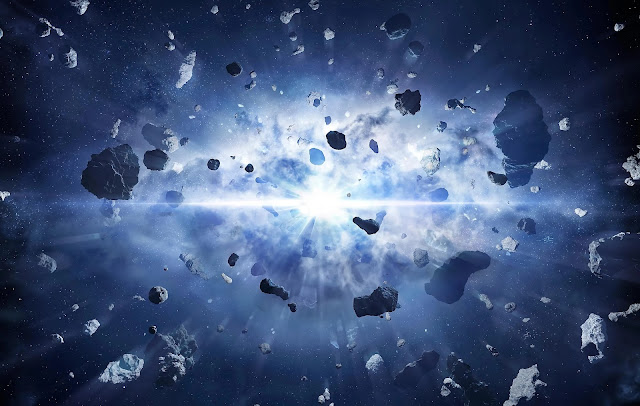Determinism is the philosophical idea that all events, including human actions, are predetermined by the laws of nature and the initial conditions of the universe. Non-determinism, on the other hand, suggests that events are random and unpredictable, and that there is no predetermined course of events.
 |
| Unraveling the Universe's Mystery: The Controversial Debate over Determinism vs. Non-Determinism |
The question of whether the universe we live in is deterministic or non-deterministic has been a topic of much debate among philosophers and scientists for centuries.
One of the fundamental principles of determinism is causality, which states that every event has a cause that preceded it. In other words, if we know the initial conditions of the universe and the laws of nature that govern it, we can theoretically predict the future with perfect accuracy. This idea is often associated with Laplace's demon, a hypothetical being who knows the position and momentum of every particle in the universe and can therefore predict the future with perfect accuracy.
However, non-deterministic views of the universe suggest that events can occur randomly and without cause. This idea is often associated with quantum mechanics, which suggests that at the subatomic level, particles can exist in multiple states simultaneously and can only be described in terms of probabilities. This randomness at the quantum level may then manifest itself in unpredictable ways at the macroscopic level.
 |
| Do we really have a choice, or are we the pawns of a chessboard? |
One of the key arguments against determinism is the existence of free will. If the universe is predetermined, then it would seem that human actions are also predetermined, and we would not have the ability to make choices freely. However, proponents of determinism argue that free will is an illusion, and that our choices are ultimately the result of the laws of nature and the initial conditions of the universe.
Another argument against determinism is the existence of chaos theory. Chaos theory suggests that even small changes in initial conditions can lead to vastly different outcomes, which means that even if the universe is deterministic, it may still be impossible to predict the future with perfect accuracy.
 |
| Unleashing the Debate: The Big Bang Theory's Feasibility Under Scrutiny |




Interesting subject.your points are very pertinent.
ReplyDeleteJust a small endeavour to share interesting information.
DeleteReality lies in Between - Quantum Darwinism. Good article
ReplyDeleteGood point. Thanks for the compliment.
Delete